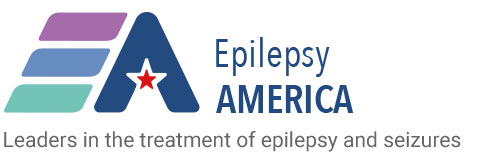Specialty Program
Pediatric Epilepsy Program
Pediatric epilepsy is a neurological condition in which the child’s brain tends to generate abnormal electrical signals, resulting in recurring seizures. These seizures can vary in intensity and duration, causing different symptoms such as staring spells, twitching, or even loss of consciousness.
The brain continuously emits electrical signals and impulses. These travel through nerve cells (neurons) in the brain and throughout the body via neurotransmitters. In epilepsy, these signals become disrupted, resulting in sudden bursts of excessive electrical activity. Epilepsy causes are varied including genetics, brain injuries, infections, or developmental issues and sometimes, doctors can find no cause for the child’s epilepsy.
Seizures are the main sign of epilepsy. During a seizure, unusual movements, changes in awareness, or strange sensations may be experienced. Seizures can be classified into different types based on their characteristics, which helps doctors understand the underlying cause and choose appropriate treatment.
Diagnosis involves a combination of medical history, physical exams, and tests (e.g., EEG -electroencephalogram), which records brain activity and helps pinpoint abnormal electrical activity during seizures.
Treatment always aims to control or reduce seizures, thereby improving the child’s quality of life. Medications are often the first line of defense and there is now a wide choice of anti-seizure medications available. However, finding the right medication or combination of medications might require some trial and error. In cases in which the medications are not effectively controlling the seizures, other treatments might be considered including diets for epilepsy, and epilepsy surgery.
Because it is a child who has epilepsy, parents, doctors, and teachers really need to work together to ensure the child’s safety and health. It is for this reason that education about epilepsy and seizures including seizure response plans for those who spend time with the child can not only reduce stigma but ensure the child’s wellbeing.
With proper medical care, a collaborative approach between the adults in the child’s life, and good management, many children with epilepsy can lead full and active lives, achieving their goals alongside their peers.
Program Description:
• Our Pediatric Epilepsy Program specializes in evaluating and treating children with epilepsy and seizures. Our clinical staff are keenly aware that a child with epilepsy and his or her family encounter special challenges that often require a multidisciplinary approach. Our team includes child neurologists with specialty training in epilepsy, neurosurgeons, neuropsychologists, nurses, and referrals to psychiatry. Our Pediatric Epilepsy team strives to provide exceptional medical care, psychological support, educational assistance, and social and community activities. We work closely with local epilepsy foundations and Epilepsy America Alliance assisting our patients to gain access to the many important resources they provide.
• Specialty programs:
* Medical treatment programs
– Approved seizure medications
– Experimental seizures medications (not available on the market)
* Surgical treatment program
* Tuberous Sclerosis Specialty Center
* Dravet Syndrome Specialty Center
* Sturge-Weber Specialty Center
• Diet Program


